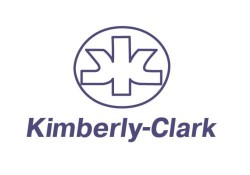Drug development is a risky endeavor. So when a small-cap company with a promising pipeline brings in a deep-pocketed partner to front development and commercialization expenses, then announces its lead drug candidate shined in two late-stage trials, investors should be able breathe a sigh of relief. But despite recent success in the clinic, Acceleron Pharma (NASDAQ:XLRN) hasn't been able to put uncertainty behind it just yet.
The $2 billion development-stage company and Celgene (NASDAQ:CELG) partnered to develop the red blood cell-boosting treatment luspatercept. Positive results in multiple phase 3 trials in 2018 stoked confidence that the drug candidate could become the preferred treatment option for certain blood disorders that typically require blood transfusions. Some even speculated Celgene would move to acquire its partner, which wasn't entirely out of the question considering it already owns a roughly 13% stake.

(Image Source: Getty Images)
Little did investors know Celgene would be the company getting gobbled up -- for a cool $74 billion offered by Bristol-Myers Squibb in early 2019. That likely means Acceleron Pharma will remain a stand-alone company for the foreseeable future, as does a recent share offering that stuffed $264 million in gross proceeds into the company's coffers. Assuming an exit through Celgene is off the table, should investors with a long-term mind-set consider the stock a buy?
Luspatercept has blockbuster potentialAcceleron Pharma and Celgene are on track to file for marketing approval from the U.S. Food and Drug Administration (FDA) of luspatercept during the first half of 2019, and it appears likely to succeed.
The drug candidate is being developed as a treatment for myelodysplastic syndromes (MDS), beta-thalassemia, and myelofibrosis -- blood disorders characterized by abnormal red blood cell development. Patients with late stages of the diseases have to undergo frequent and costly blood transfusions to address the deficiency. While treatment works, complications can significantly reduce quality of life.
Results from multiple phase 3 trials investigating luspatercept have suggested a promising future for patients. The Medalist (MDS) and Believe (beta-thalassemia) trials showed individuals taking the drug candidate could create meaningfully more healthy red blood cells on their own and the need for blood transfusions was significantly reduced over long periods of time. If luspatercept becomes the go-to treatment option in the United States and Europe, then Acceleron Pharma thinks it can reach peak annual sales of more than $2 billion.
A promising pipeline is an expensive pipelineLuspatercept seems likely to earn marketing approval from the FDA. While Celgene must pay for commercialization and marketing costs, Acceleron Pharma stands to receive significant milestone payments (up to $211 million total at the time the partnership was announced in 2011), split profits on North American sales, and low- to mid-20% royalties on European sales. It figures to be a pretty sweet deal for the development-stage company.
That said, management is already beginning to dedicate more bandwidth to the rest of the pipeline. Acceleron Pharma has four ongoing or planned phase 2 trials for two additional drug candidates: ACE-083 in neuromuscular disorders and sotatercept in pulmonary arterial hypertension (PAH). None of the programs are currently partnered, which hints operating expenses are about to rise significantly.
That will be an area for investors to watch, especially considering in the first nine months of 2018, the business delivered an operating loss of $87 million, operating cash outflows of $66 million, and a 15% increase in research and development expenses compared to the same period last year.
It should be no surprise, that the business has been accumulating cash lately, exiting September 2018 with cash, cash equivalents, and short-term investments of nearly $320 million. Add that to $260 million in gross proceeds from Acceleron's recent share offering, and the $2 billion company should have around $500 million in cash, cash equivalents, and short-term investments at the end of the first quarter of 2019.
That suggests cash won't be an issue for Acceleron Pharma anytime soon, which is especially true if luspatercept earns marketing approval and hits the ground running in 2020. However, the company stated it may use some of the proceeds from its recent share offering for the "potential acquisitions of rights to additional programs from third parties." That could mean anything, but investors may want to consider the company might buy out Celgene's rights to sotatercept in PAH.

Image Source: Getty Images
Sotatercept was originally developed by Acceleron Pharma, then licensed to Celgene for study in a variety of diseases, but the originator reacquired the rights in PAH in late 2017 after discovering the drug candidate's disease-modifying potential. Individuals with PAH suffer from constricted lung arteries marked by significantly elevated blood pressure within their lungs. The debilitating disease makes daily activities cause shortness of breath, and the five-year survival rate is a sobering 57%. Acceleron Pharma thinks sotatercept has the potential to turn PAH into a manageable disease, though that judgment is based on animal data alone.
Nonetheless, if Acceleron Pharma can buy out Celgene before results are announced from the ongoing phase 2 trial in early 2020, and the midstage study corroborates findings from promising animal studies (which often don't hold up in humans), then the company could have another potential blockbuster on its hands. PAH treatments have annual sales of $4 billion in the United States. And since sotatercept works through a unique mechanism of action, it could be combined with existing treatment options, potentially increasing its market potential beyond the existing opportunity.
Acceleron Pharma has a favorable risk-reward profileInvestors with a long-term mindset should feel relatively comfortable with a position in Acceleron Pharma. The market potential for luspatercept is significant, and the drug's launch might be a key area of focus for growth-hungry Bristol-Myers Squibb once the dust settles from its Celgene acquisition.
If the drug is successfully commercialized, then Acceleron Pharma would significantly de-risk the development of its remaining clinical assets, including the under-the-radar drug candidate sotatercept in PAH. While the asset has yet to prove its worth in the clinic, Acceleron Pharma found its potential significant enough to reacquire the development and commercialization rights from Celgene in late 2017.
Now flush with cash, and with midstage data for the drug candidate on the way in the first half of 2020, investors should be intrigued by the possibility that Acceleron Pharma won't be a one-trick pony for much longer. That could mean the stock has more upside than Wall Street, which is currently focused on luspatercept alone, expects.
 Parallel Advisors LLC boosted its holdings in Kimberly Clark Corp (NYSE:KMB) by 10.5% in the fourth quarter, HoldingsChannel.com reports. The firm owned 1,762 shares of the company’s stock after acquiring an additional 168 shares during the period. Parallel Advisors LLC’s holdings in Kimberly Clark were worth $200,000 as of its most recent filing with the Securities and Exchange Commission (SEC).
Parallel Advisors LLC boosted its holdings in Kimberly Clark Corp (NYSE:KMB) by 10.5% in the fourth quarter, HoldingsChannel.com reports. The firm owned 1,762 shares of the company’s stock after acquiring an additional 168 shares during the period. Parallel Advisors LLC’s holdings in Kimberly Clark were worth $200,000 as of its most recent filing with the Securities and Exchange Commission (SEC).  Mark Schiefelbein | AFP | Getty Images (L-R) US Treasury Secretary Steven Mnuchin, US Trade Representative Robert Lighthizer and Chinese Vice Premier Liu He pose for a group photo at the Diaoyutai State Guesthouse in Beijing on February 15, 2019.
Mark Schiefelbein | AFP | Getty Images (L-R) US Treasury Secretary Steven Mnuchin, US Trade Representative Robert Lighthizer and Chinese Vice Premier Liu He pose for a group photo at the Diaoyutai State Guesthouse in Beijing on February 15, 2019.  Adam Jeffery | CNBC Alex Gorsky, CEO of Johnson & Johnson
Adam Jeffery | CNBC Alex Gorsky, CEO of Johnson & Johnson  Simon Dawson | Bloomberg | Getty Images A food delivery courier puts an insulated food bag in his UberEats, operated by Uber Technologies Inc. More run in Zoetis?
Simon Dawson | Bloomberg | Getty Images A food delivery courier puts an insulated food bag in his UberEats, operated by Uber Technologies Inc. More run in Zoetis?  Adam Jeffery | CNBC Juan Ramon Alaix, CEO of Zoetis
Adam Jeffery | CNBC Juan Ramon Alaix, CEO of Zoetis  Asure Software Inc (NASDAQ:ASUR) has been assigned an average recommendation of “Buy” from the ten research firms that are currently covering the stock, Marketbeat Ratings reports. One equities research analyst has rated the stock with a sell rating, two have issued a hold rating and six have assigned a buy rating to the company. The average 1 year price target among brokerages that have issued ratings on the stock in the last year is $13.50.
Asure Software Inc (NASDAQ:ASUR) has been assigned an average recommendation of “Buy” from the ten research firms that are currently covering the stock, Marketbeat Ratings reports. One equities research analyst has rated the stock with a sell rating, two have issued a hold rating and six have assigned a buy rating to the company. The average 1 year price target among brokerages that have issued ratings on the stock in the last year is $13.50.  Kepler Capital Markets set a €240.00 ($279.07) target price on Allianz (FRA:ALV) in a research note published on Friday morning. The brokerage currently has a buy rating on the stock.
Kepler Capital Markets set a €240.00 ($279.07) target price on Allianz (FRA:ALV) in a research note published on Friday morning. The brokerage currently has a buy rating on the stock.